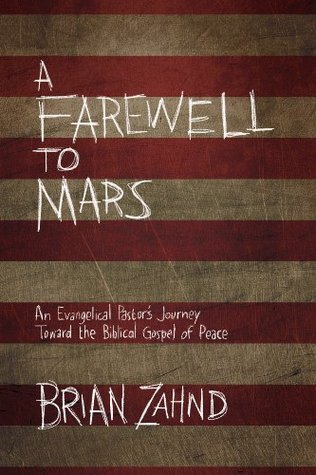More on this book
Community
Kindle Notes & Highlights
by
Brian Zahnd
Read between
January 10 - January 12, 2019
Yes, I believe in a personal judgment—“For all of us must appear before the judgment seat of Christ, so that each may receive recompense for what has been done in the body, whether good or evil” (2 Cor. 5:10). But I don’t think this is what Jesus was particularly talking about in his parable of the sheep and goats. Jesus spoke of nations judged, not individuals. And the criterion for judgment has nothing to do with “receiving Jesus as Savior” but with the treatment of the underclass with whom Jesus claimed a particular solidarity.
When asked to identify the origin of Satan, we are commonly directed to Isaiah 14. This is the passage where the king of Babylon is called Lucifer (Day Star) and described as “fallen from heaven” for coveting the throne of God. But what should be readily apparent is that Isaiah is giving us a prophetic critique of empire by using the king of Babylon as a personification for the whole imperial project. This is quite clear from a careful reading of the text.
Biblically understood, empires are rich and powerful nations that believe they have a right to rule other nations and a manifest destiny to shape the world according to their agenda.
God is forever opposed to empires. God loves nations and delights in their rich diversity, but God hates empires.
In Isaiah’s taunt of Babylon we discover a number of the characteristics of empire. For example, they aggressively seek to rule other nations. Empires are arrogant in their environmental degradation—they view the earth as theirs and not the Lord’s. Because of their paranoia and cruelty, they hold prisoners indefinitely. Empires practice the propaganda of calling destruction peace. Isaiah says Babylon made the world like a desert and overthrew its cities.
Empires believe in their own exceptionalism but end up being cut down to size, becoming like all the other nations. The real problem with empires is the hubris that impels them to impinge upon the sovereignty of God by seeking to rule other nations.
Babylon does not prioritize care for the poor and sick; Babylon does not welcome the immigrant; Babylon does not treat its prisoners humanely.
So politically I call for my nation to prioritize caring for the poor, the sick, the immigrant, and the imprisoned, and to renounce an ambition to dominate the world economically or militarily. I do this in the name of Jesus. I pledge no allegiance to elephants or donkeys, only to the Lamb. These are my politics for the simple reason that they are clearly the politics of Jesus.
Originally the Roman cross was a weapon of war. The Romans used crucifixion as a form of psychological warfare to intimidate the population into compliance with the empire. Crucifixion was a means of torture and execution reserved for insurrectionists and rebellious slaves—those who threatened the security of the empire.
Because of Christ and his resurrection, the Roman cross no longer represents torture and death. It now represents love and forgiveness. Jesus used an implement of violence and war to offer the world an alternative to violence and war. We are not safe. But we are saved.
Some will wonder if I am saying a Christian cannot enlist in the armed forces or enroll in a military academy. That is not my point. My point is that when a military academy builds a chapel out of fighter jets and replaces the cross with a sword, it is not for the worship of Christ but for the worship of Mars—even if that’s not consciously acknowledged.
And here is the worst irony: It was precisely because Jerusalem failed to recognize Jesus as Isaiah’s Prince of Peace right there and then that they rushed headlong into the war that ended with their own destruction!
Let me say it clearly: if you are waiting for something to happen before you beat your sword into a plowshare and your spear into a pruning hook, you can stop waiting! If you confess that Jesus is the Prince of Peace foretold by the prophets, you can start being a peacemaker—today! You don’t need to wait for anything else. You shouldn’t wait for anything else!
Who are the post-Hiroshima dreamers who dared to imagine a world beyond war? John Lennon? Perhaps. But what about someone far removed from the 1960s counterculture? Someone like President Dwight D. Eisenhower. In 1953, early in his presidency, Eisenhower warned: Every gun that is made, every warship launched, every rocket fired, signifies, in the final sense, a theft from those who hunger and are not fed, those who are cold and are not clothed … The cost of one modern heavy bomber is this: a modern brick school in more than 30 cities. It is two electric power plants, each serving a town of
...more


